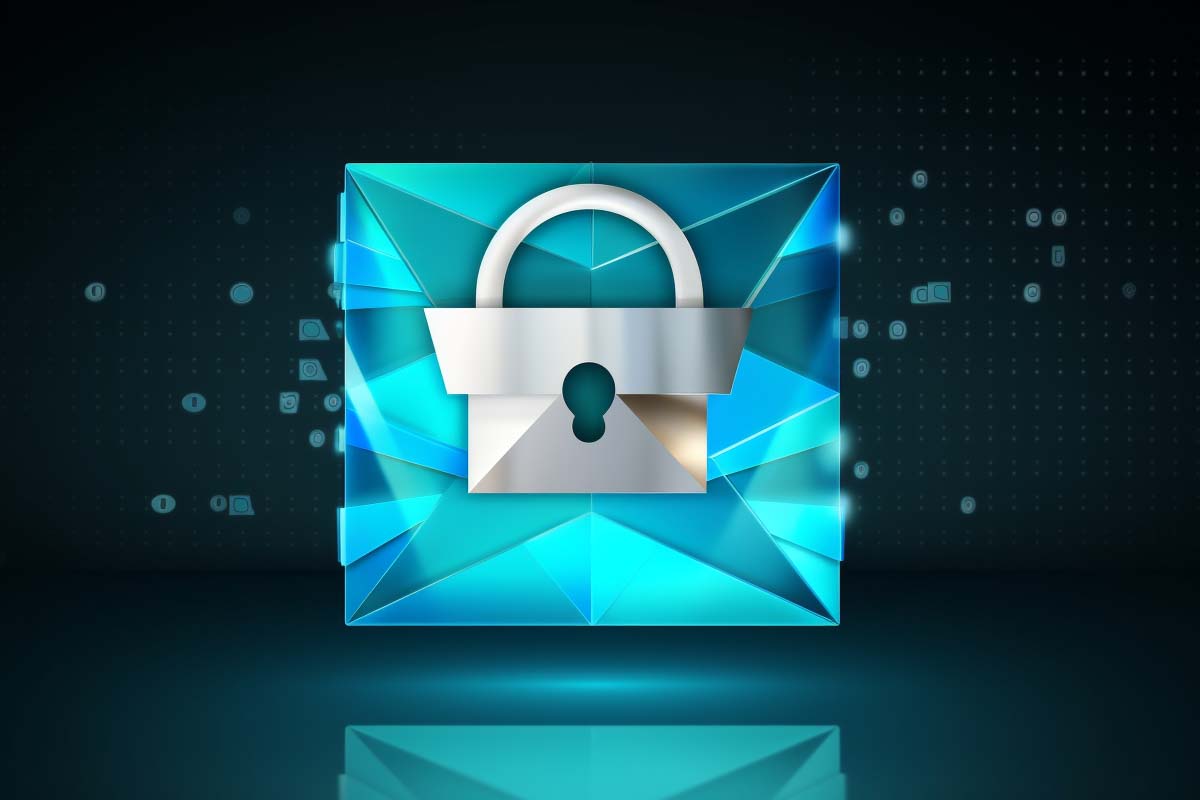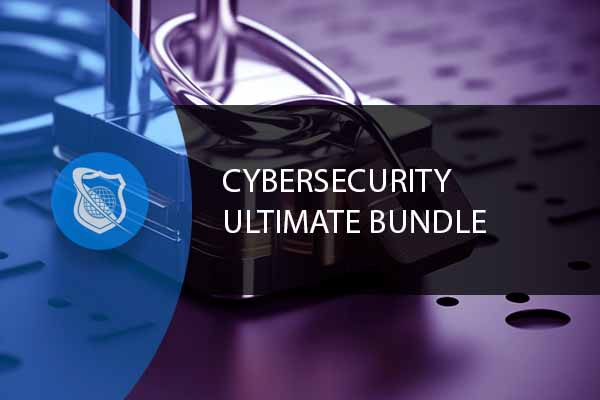Welcome to the digital age, where your email inbox is more than just a repository for cat videos and newsletters you don’t remember subscribing to. It’s a vault containing your digital identity, private conversations, and occasionally, that secret recipe for grandma’s lasagna. But as Spider-Man’s Uncle Ben almost said, “With great email power comes great responsibility.” That’s where email security steps in, ensuring your digital correspondence doesn’t turn into an open book for cyber ne’er-do-wells. So, strap in as we embark on a journey through the world of email security, where the only thing more robust than the encryption is our penchant for puns!
The Evolution of Email Security: From Morse Code to Encrypted Prose
Remember the days when ‘hacking’ meant using a Morse code book to decipher your friend’s amateur radio messages? Well, email security has evolved a bit since then. In the beginning, email was as secure as a diary with a ‘Keep Out’ sticker. But as more people started sharing their digital diary entries (emails, I mean), the need for security became as clear as the difference between ‘Reply’ and ‘Reply All’.
Let’s take a nostalgic stroll down memory lane:
- The Stone Age of Email: In the early days, email security was more of an afterthought, like bringing an umbrella in a desert.
- The Rise of Encryption: Then came encryption, turning your emails into digital enigmas that would make Alan Turing proud.
- The Spamocalypse: With the advent of spam, email security had to step up its game, because nobody likes their inbox to resemble a can of spam, metaphorically speaking.
- Today’s Cybersecurity Fortress: Fast forward to now, and email security is a high-tech fortress, complete with virtual moats and cryptographic drawbridges.
Cybersecurity Training Series – 15 Courses
Embark on a Thriving Cybersecurity Career! With our Ultimate Cyber Security training courses, you’ll dive into the world of ethical hacking, penetration testing, and network security. Our 15 comprehensive courses, led by industry experts, will equip you with essential Cybersecurity skills, setting you on the path to success in this ever-evolving field.
Decoding Email Encryption: TLS and SSL, The Dynamic Duo
Talking about TLS (Transport Layer Security) and SSL (Secure Sockets Layer) can be as dry as a motherboard manual. So, let’s spice it up! Imagine TLS and SSL as the digital equivalent of secret handshakes. When your email uses TLS or SSL, it’s like it’s giving the receiving server a secret handshake, confirming that it’s safe to share secrets (or your email content, in this case).
Here’s the lowdown:
- TLS: It’s like a secret agent that encrypts your email’s journey across the internet. Think of it as a cloak of invisibility for your digital missives.
- SSL: The older cousin of TLS, it’s like a trusted courier who ensures your emails reach their destination without being peeked at by nosy neighbors (hackers, we’re looking at you).
The Tale of Two Ports: A Security Saga
In the epic tale of email security, two ports stand out: let’s call them Port 25, the Old Guard, and Port 587, the Secure Sentinel.
- Port 25: This port is like that old, trusty mailbox at the corner of your street. It’s been there forever, but it’s not the best at keeping secrets. It’s unencrypted, making it the digital equivalent of sending a postcard.
- Port 587: Then there’s Port 587, the Fort Knox of email ports. It uses encryption, meaning it’s like sending a letter in a locked, tamper-proof briefcase.
The Risks of Neglecting Email Security: A Cautionary Tale
Imagine sending a love letter and accidentally addressing it to your entire contact list. That’s the kind of oops moment poor email security can lead to, but with more dire consequences. The risks range from the embarrassing (like accidentally forwarding a meme to your boss) to the catastrophic (like leaking sensitive company data).
Let’s break it down:
- Identity Theft: Like leaving your diary at a cafe, weak email security can lead to identity theft.
- Financial Fraud: It’s the digital equivalent of dropping your credit card in a crowded place.
- Corporate Espionage: Think of it as accidentally giving your competitor the playbook to your business strategy.
Lock In Our Lowest Price Ever For Only $16.99 Monthly Access
Your career in information technology last for years. Technology changes rapidly. An ITU Online IT Training subscription offers you flexible and affordable IT training. With our IT training at your fingertips, your career opportunities are never ending as you grow your skills.
Plus, start today and get 30 days for only $1.00 with no obligation. Cancel anytime.
Best Practices for Bulletproof Email Security: The Checklist
Securing your email doesn’t mean you need to be a tech wizard who speaks in binary.
Here are some straightforward yet effective steps to bulletproof your email security:
- Use Strong, Unique Passwords: Your email password shouldn’t be ‘password123’ or your pet’s name followed by your birth year. Think more along the lines of ‘G4l@xyF!ght3r#2024!’ – the more complex, the better.
- Enable Two-Factor Authentication (2FA): It’s like adding a second lock to your digital door. Even if someone guesses your password, they still need the second key (usually a code sent to your phone) to get in.
- Beware of Phishing Attempts: If you receive an email from a Nigerian prince offering you his fortune, it might just be too good to be true. Always verify the authenticity of emails requesting personal information.
- Regularly Update Your Email Software: Outdated software is like a rusty armor; it won’t protect you very well. Keep your email client and security software updated to patch any vulnerabilities.
- Encrypt Sensitive Emails: Use email encryption for sensitive information. It’s like sending your message in a secret code that only the recipient can decipher.
- Educate Yourself and Others: Stay informed about the latest email scams and educate your family, friends, and colleagues. Knowledge is power, especially in the realm of cybersecurity.
Future Trends in Email Security: Crystal Ball Predictions
Looking into our digital crystal ball, we foresee some intriguing developments in the realm of email security:
- AI-Powered Threat Detection: Artificial Intelligence will become the Gandalf of email security, saying, “You shall not pass!” to cyber threats.
- Quantum Encryption: With quantum computing on the rise, expect email encryption to level up to quantum levels, making current encryption methods look like child’s play.
- Biometric Authentication: In the future, accessing your email might require a retina scan or fingerprint, making it feel like you’re unlocking a secret spy gadget every time you check your inbox.
The IT Professional’s Guide to Email Security: Insider Tips
For the IT crowd, managing email security is a bit like being a digital gatekeeper. Here are some pro tips:
- Implement Advanced Email Gateways: Use gateways that can analyze and filter incoming emails for threats and spam. It’s like having a bouncer for your email server.
- Regularly Audit Email Security Protocols: Conduct frequent audits to ensure compliance with security policies. It’s like a health check-up for your email system.
- Conduct Staff Training Sessions: Regularly educate staff about security practices. Remember, the human element is often the
weakest link in the security chain.
- Use Email Encryption for Sensitive Data: Implement policy-based email encryption to automatically secure sensitive information. It’s like putting your most valuable data in a digital safe.
- Monitor for Unusual Activity: Keep an eye on email traffic. If you see a sudden spike in outgoing emails, it might be a sign of a compromised account.
- Backup Email Data: Regularly backup email data to prevent loss in case of a cyber attack. It’s the digital equivalent of having a spare tire.
Information Security Analyst Career Path
An Information Security Analyst plays a pivotal role in safeguarding an organization’s digital infrastructure and sensitive data. This job involves a blend of technical expertise, vigilance, and continuous learning to protect against ever-evolving cyber threats.
Conclusion: SMTP Port 25 Vs. Port 587 – Securely Signing Off
And there you have it, a journey through the maze of email security, where the only thing more secure than Port 587 is the knowledge you’ve gained today. Remember, in the digital world, your email is more than just a means of communication; it’s a gateway to your personal and professional life.
So, whether you’re an IT guru or just someone who’s ever wondered why their spam folder is full of offers for magic beans, take these tips to heart. Secure your email like it’s a treasure chest, because in many ways, it is. And the next time you hit ‘send’, rest easy knowing that your digital message in a bottle is as secure as it can be.
Here’s to safer inboxes, less spam, and the continued enjoyment of those cat videos – securely, of course. Email security: it’s no joke, but who says it can’t be fun?
Frequently Asked Questions Related to Email Security
What is the difference between SMTP ports 25 and 587?
SMTP port 25 is the traditional port used for sending emails but is unencrypted, making it less secure. Port 587, on the other hand, is used for secure email transmission, employing encryption methods like TLS or SSL to protect sensitive data.
Why is email encryption important?
Email encryption is crucial for protecting sensitive information from being intercepted and read by unauthorized parties. It ensures confidentiality and integrity of the data being sent, making it essential for personal privacy and business security.
How can I improve my email security?
To enhance email security, use strong, unique passwords, enable two-factor authentication, be wary of phishing attempts, keep your email software updated, encrypt sensitive emails, and educate yourself about the latest security threats and best practices.
What future trends in email security should we expect?
Future trends in email security include AI-powered threat detection, quantum encryption for advanced data protection, and the use of biometric authentication for accessing email accounts, adding layers of security beyond current practices.
Is it necessary for IT professionals to regularly audit email security?
Yes, regular audits of email security are essential for IT professionals. These audits help ensure compliance with updated security policies, identify potential vulnerabilities, and maintain the overall integrity and safety of the email systems in an organization.














